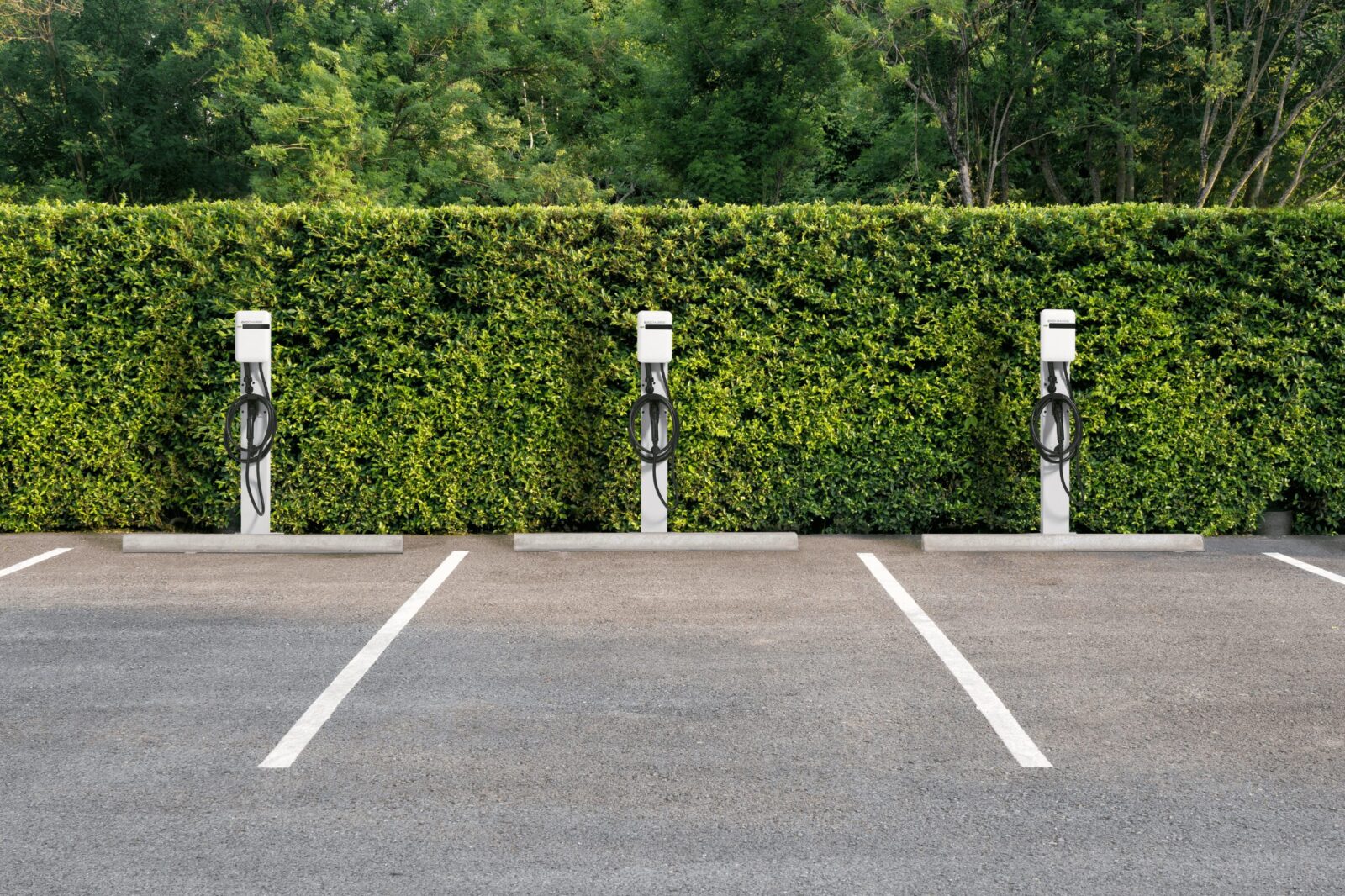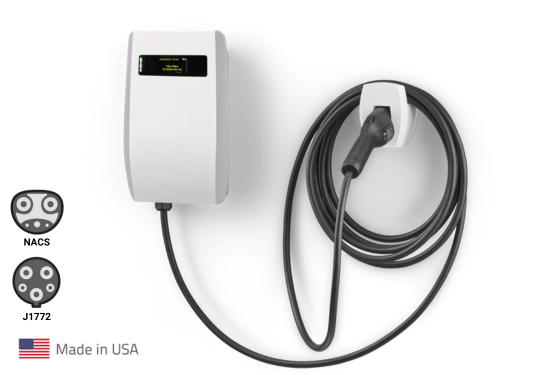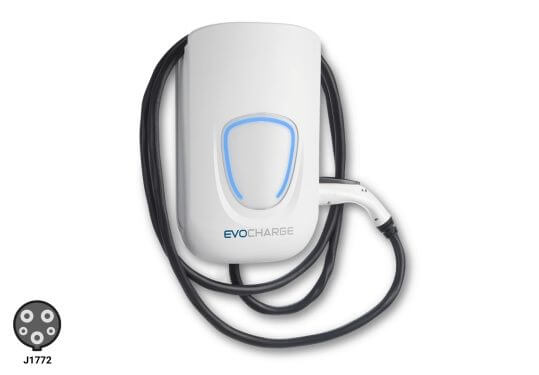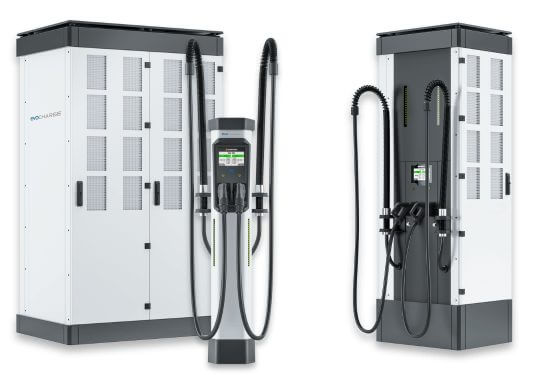The Growing Need for EV Charging at Businesses
There has never been a greater need for businesses to invest in EV chargers. Approximately 1.14 million new electric vehicles were registered in 2024, adding to the already four million EVs on U.S. roads, and the number is expected to continue to climb. Businesses that include EV charging stations on their property offer EV drivers a much-needed incentive.
Whether your parking lot or ramp is primarily used by customers or employees, providing an electric vehicle charging station at your business can help attract and retain employees, increase on-site time for customers and support corporate sustainability goals. Additionally, you can provide charging as an amenity or collect revenue from it.
But what does your business need specifically when it comes to the perfect EV charging station? We’ll outline how to choose the right EV charger for your business.
Types of EV Chargers: Level 1, Level 2. and DC Fast Charging
There are three types of EV chargers on the market today. Two of them are suitable for business use.
Level 1 EV Chargers
Level 1 chargers are the slowest and most basic. These are the chargers that often come with vehicle purchases, intended for personal use for overnight charging at home. They plug directly into an outlet.
Level 2 EV Chargers
Suitable for personal and business use, Level 2 chargers are much faster than Level 1 chargers and can be found with additional system settings and features. Often these are best suited for locations where you want some control over the settings but will allow for longer use — such as at hotels where patrons can keep their car plugged in overnight or office buildings where employees will use the charger during their working hours.
Level 2 EV chargers can also be great for other businesses like retail stores because of their lower pricepoint, but they will be slower than DC fast chargers and provide less control capabilities. However, an advantage is that they can be hardwired directly to the existing electrical grid as long as there’s enough power available.
DC Fast Chargers
DC chargers (aka, Level 3 chargers) are commercially available EV chargers that provide the fastest EV charging on the market. However, these systems require considerably higher costs due to their power infrastructure requirements and more complex hardware and installation. These are often the best option for businesses that have higher traffic volume and want to generate revenue while providing the fastest and most efficient charging.
Key Use Factors To Consider When Choosing a Commercial EV Chargers?
When looking at EV chargers for your business, consider first who the user will be, how many people will need to charge and how you want them to use it.
Public vs. Private Use
Will the end-user be a customer off the street (public use) or an employee who will be working out of an office for several hours at a time (private use)? For public use, you may want to consider a faster charging speed that will make a difference in your customers’ battery life over a shorter period. If an employee is fine keeping plugged-in for a longer period, a slower charging speed with less power output will work.
Network vs. Open-Use Charging
Once you have determined who will use your chargers, it’s time to think about whether you need a charging network. If your charging station will be closely controlled — like if the chargers are for fleet use only or installed within a private lot — and you want users to be able to just plug in, you may not need a networked station.
A networked charging station does allow for more control over how your EV chargers are used and the management of your stations— including setting up load management, pay-to-use features, access control or use monitoring. The EvoCharge Network simplifies charging management and provides flexibility for your business, which you can control from your desktop computer.
The advantages and disadvantages of different networks depends entirely on what that service will provide, but EvoCharge units are open charge point protocol (OCPP) compatible which allows them to use or switch to a network provider of your choice.
Network Load Management
Regardless of the user, you will want to consider how your chargers should manage and distribute the power available.
Network Load Management features allow you to balance the demand each station places on the electrical circuit by distributing the power each charging station gets based on the maximum capacity for their circuit. Load management simplifies the installation and setup of multiple chargers in both retrofit and new projects, especially where power availability is limited or upgrades are cost prohibitive. Owners that use the EvoCharge Network can easily manage and set up up to 20 charging stations on a single circuit, with no need to configure physical units in the field.
Scheduling
Scheduling charger availability allows businesses to control when the chargers can be used and manage the cost to charge, if applicable. If you’re concerned about allowing use to non-employees and customers, the chargers can be scheduled to only charge during specific hours or segment paid/free charging by user type. You choose how and when to generate revenue by time of day or by type of user.
Once you know who, when and how the chargers will be used, you can begin planning the physical space.
Location Planning and Installation Considerations
Once you have determined what level of charger you would like to install, how many you will need and how you will manage them, you will want to decide on a location.
DC fast chargers are usually installed around the perimeter of a lot where there is more space for both the equipment needed and vehicles, while Level 2 chargers may be up closer to the front of the building. It all just depends on whether you have the space and what type of incentive you would like to provide (eg. Paid charging can give you a better parking spot close to the building).
But another major factor will be the electrical infrastructure. If the electrical will need to be wired from the building, you will want to determine a spot closer versus if power needs to be routed to a periphery location on the property.
To determine the best place for your system, we recommend working with qualified electricians and installers. Keep in mind that you may want to plan your installation to accommodate additional charging stations in the future, especially if you anticipate expanding your current setup.
How To Get an EV Charging Station at Your Business
When it comes to choosing an EV charger for your business, you don’t have to go into it alone. At EvoCharge, our expert team understands every detail of commercial EV charger installation, guiding you to the ideal solution for your unique needs. Partner with us to ensure a seamless, future-ready setup—contact us today to schedule a meeting and explore your options.



